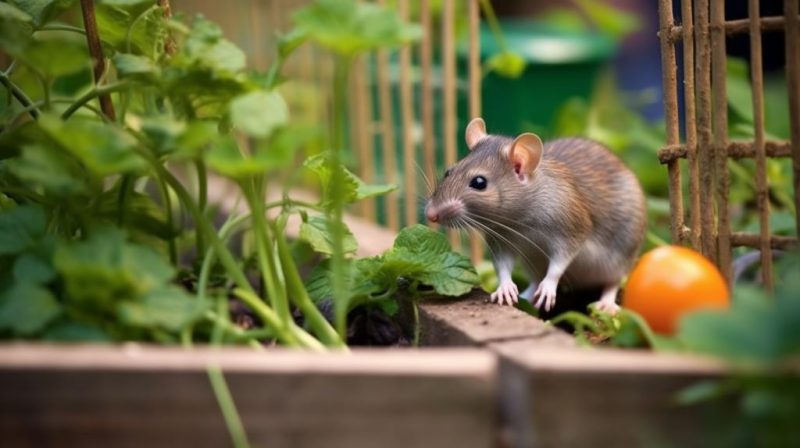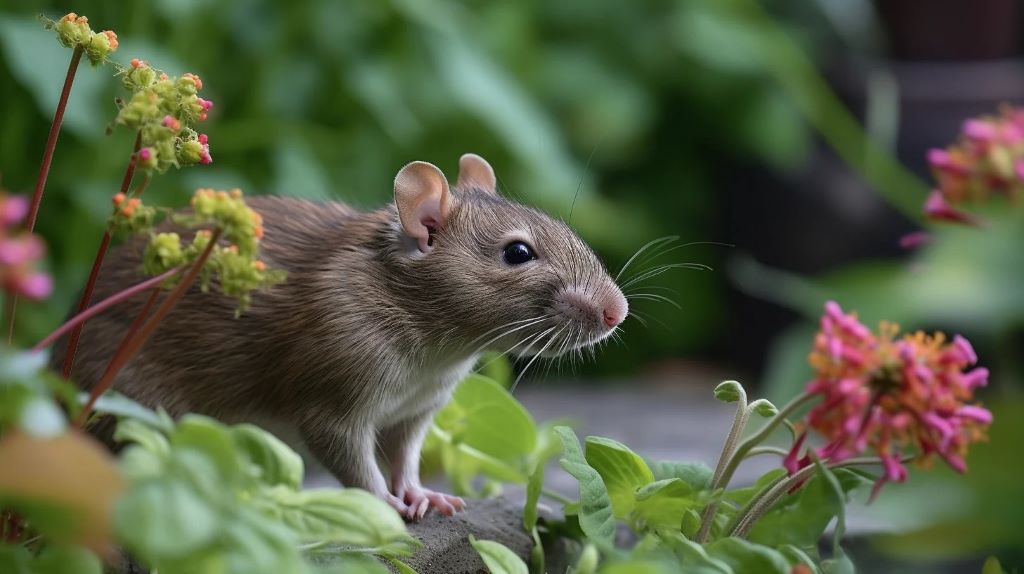Rats are a common pest in gardens, especially in urban areas. They can cause damage to plants, spread disease, and even become a nuisance to neighbors. If you’re dealing with a rat problem, don’t despair – there are a number of things you can do to get rid of them.
Understanding the Rat Problem
Before you can tackle a rat infestation, it’s important to understand why they’re attracted to your garden in the first place. Rats are opportunistic feeders, and they’re drawn to areas where they can easily find food and shelter. Here are some common attractants:
- Food Sources: Fallen fruit, bird feeders, pet food left outside, compost heaps, and even vegetable gardens can all attract rats.
- Shelter: Overgrown vegetation, piles of wood or debris, and gaps or holes in fences and sheds can provide rats with places to hide and build nests.
Prevention: The Best Defense
The most effective way to get rid of rats is to prevent them from getting into your garden in the first place. Here are some preventative measures you can take:
- Secure Food Sources: Store rubbish in bins with tight-fitting lids, avoid leaving pet food outside, and consider using squirrel-proof bird feeders.
- Tidy Up: Regularly clear away fallen fruit, keep compost heaps well-maintained, and remove any piles of debris.
- Seal Entry Points: Block up any holes or gaps in fences, sheds, and outbuildings. Use wire mesh or cement to seal off any potential entry points.
Humane Deterrents
If you’re looking for humane ways to deter rats, here are a few options to consider:
- Ultrasonic Devices: These devices emit high-frequency sounds that are unpleasant to rats but inaudible to humans. There is some debate about their effectiveness, but they may be worth a try.
- Peppermint Oil: Rats dislike the smell of peppermint oil. Soak some cotton balls in the oil and place them around potential entry points.
- Predator Urine: Foxes, owls, and other predators of rats can deter them from entering your garden. You can purchase predator urine online and spray it around the perimeter of your garden.
Trapping and Poisoning: Proceed with Caution
While trapping and poisoning can be effective ways to get rid of rats, they should be used with caution. If not used correctly, traps and poisons can harm pets, children, and other wildlife. If you do choose to use these methods, it’s important to follow the instructions carefully and to use them only in areas where children and pets cannot access them.
Seeking Professional Help
If you have a severe rat infestation, or if you’re uncomfortable using traps or poisons, it’s best to seek professional help. Pest control companies have the expertise and equipment to safely and effectively get rid of rats.
Additional Tips
- Be Patient: Getting rid of rats can take time and persistence. Don’t get discouraged if you don’t see results immediately.
- Be Vigilant: Regularly check your garden for signs of rats, such as droppings, gnaw marks, and burrows.
- Work with Neighbors: If your neighbors are also having problems with rats, it’s important to work together to control the infestation.
Remember, a rat-free garden is achievable with the right approach. By following these tips and taking a proactive stance, you can reclaim your green space and enjoy it to the fullest.





